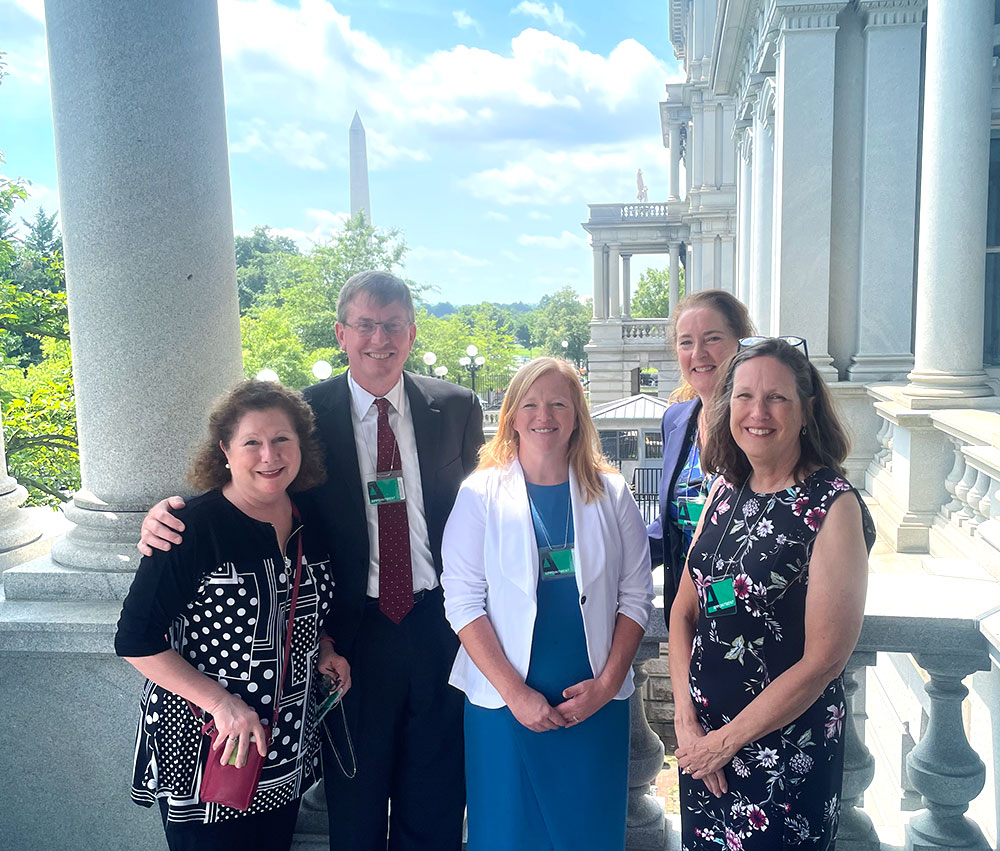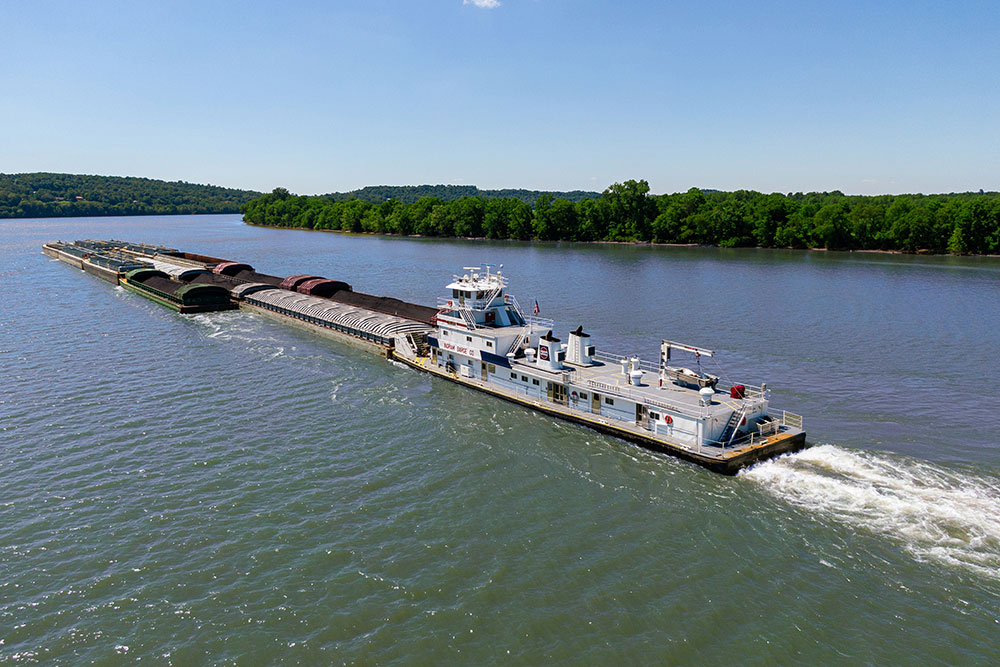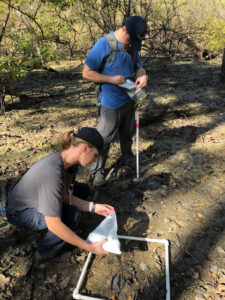News & Updates
Recent updates from America’s Watershed Initiative.News & Updates
Recent updates from America’s Watershed Initiative.AWI Newsletter – Spring-Summer 2022
America’s Watershed Initiative Goes to Washington

Board Chair, Dr. Larry Weber, Professor of Civil and Environmental Engineering, University of Iowa; and Board members Teri Goodmann, Director of Strategic Partnerships, City of Dubuque; Kirsten Wallace, Executive Director, Upper Mississippi River Basin Association; and AWI’s Executive Director Kim Lutz traveled to Washington, DC in July. We were joined by Kameran Onley, Director, U.S. Government Relations, The Nature Conservancy.
While there, we met with Under Secretary for Farm Production and Conservation Robert Bonnie and Chief of Staff Tim Gannon at the U.S. Department of Agriculture, and with Assistant Secretary of the Army (Civil Works) Michael Connor and Executive Officer Col. Steven Sattinger at the U.S. Army Corps of Engineers, as well as with staff at the White House Office of Public Engagement and the Council on Environmental Quality. In these important meetings, we discussed policy pathways to address the Mississippi River Watershed’s key challenges – flooding, water quality, climate, and transportation.

BACK TO SCHOOL: Next Generation Mississippi River Watershed Report Card

In March, AWI spent time with staff from the U.S. Army Corps of Engineers (USACE) Mississippi Valley Division and the Engineer Research and Development Center (ERDC). The USACE has been and continues to be a key partner to AWI and a leader in the development of key information about the Mississippi River Basin. Therefore, in June we began a series of discussions with USACE staff to consider criteria that could be used to assess the health of navigation, flooding, and the environment across the watershed. New science and data sources are being evaluated as we consider metrics that could point to ways we can “raise the grade” in these key areas. These data and potential criteria and metrics will then be evaluated by technical advisory teams that will soon be formed across the major basins that make up the Mississippi River Watershed.
Science in Decision Making

The release of two significant data sets this summer:
- Upper Mississippi River Basin Association’s (UMRBA) How Clean is your River Executive Summary
- Upper Mississippi River Restoration Program, a collaboration between the U.S. Geological Survey, U.S. Army Corps of Engineers and the five upper basin states, Status and Trends Report provide an opportunity to share information to maximize its impact and to galvanize stakeholder action.
To highlight these resources and the importance of science in providing critical insights into how the Mississippi River system is faring , America’s Watershed Initiative’s Board President Dan Mecklenborg, retired Chief Legal Officer for Ingram Barge Company, and our Board Chair, Larry Weber, Professor of Civil and Environmental Engineering at the University of Iowa, penned a recently published op-ed which you can read here.
Science to Inform Action
This spring, AWI served on the Steering Committee of the Lower Mississippi River Science Symposium, hosted by Tulane University’s Department of Coastal River Coastal Science and Engineering. The symposium seeks to establish a recurring forum to connect academic, government and NGO scientists and managers in the region to share research, ideas, and needs with a goal of building synergy. The themes explored during this year’s meeting included: hydrologic modeling, sediment transport, water quality and navigation. Additional information about the summit and presentations can be found here.

AWI Around the Basin
AWI was also delighted to present at the following meetings:
- Upper Mississippi/Lower Mississippi River Conservation Committee annual meeting, Cape Girardeau, MO, March 2022. This conference brought together nearly 200 leaders in conservation of the resources of the Upper and Lower Mississippi River Basins.
- The St. Louis University Summit for Water, March 2022. This Summit engages leaders and experts from academia, industry, nonprofit and government to share ideas, and cutting-edge research needed to tackle some of the most critical and persistent challenges impacting water resources.

